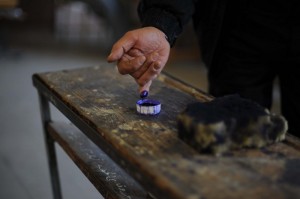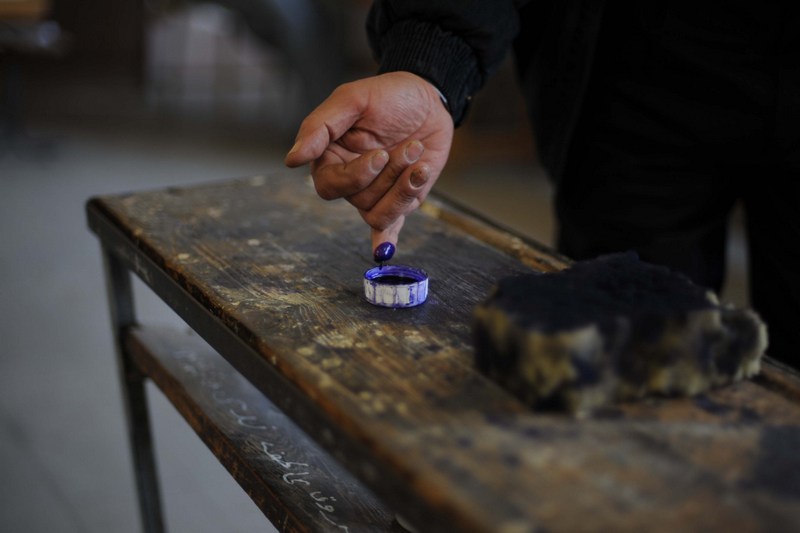
(AFP Photo)
The Shura Council voted to pass the political participation bill in its Wednesday session and approved the House of Representatives bill but postponed final voting on the bill to the Thursday session.
The upper house of parliament’s Committee on Constitutional Affairs went through the House of Representatives election bill articles. Shura Council members debated and voted on the articles.
All that remains is for the council to hold a final vote on the complete bill. All the bill’s articles have been voted on individually and passed.
Council members voted down two proposed methods for dividing electoral districts, one that would see each governorate represented by only one district and the other proposing an equal amount of districts for both the seats decided by closed party list proportional representation voting and those decided by individual two-round voting.
Instead, the council decided to keep the electoral districts the way they are: 47 for seats decided by closed party list proportional representation voting and 90 for those decided by individual two-round voting. The total seats within the house will remain 546.
The upper house of parliament also voted to remove explicit legislation banning the use of religious campaign slogans from Article 13 and instead included a clause banning campaign slogans that “discriminate against citizens based on religion, origin, or gender”.
The members also voted to remove another clause from the same article banning “insulting a candidate or political party in any way” but banned interfering in a candidate’s private life.
The council passed Article 25, which bans elected members of the House of Representatives from having any financial dealings with the state. MPs are also banned from accepting gifts they received on account of being parliamentarians and must donate them to the state treasury.
Article 28 allows elected representatives to continue receiving salaries from their original jobs despite several dissenting opinions declaring that parliamentarians should not receive outside wages because they receive compensation for attending parliamentary sessions but should devote all their time to parliament
Those agreeing to the article argued that parliamentary compensation was not enough and that if MPs are to devote all their time to parliament they should receive wages not compensation. However, the state budget currently cannot accommodate wages for parliament.
The passed bill also includes Article 42, which bans policemen, military personnel, judges, governors, General Intelligence Service Directorate agents, and members of the Administrative Oversight Authority from running for House of Representatives elections without first resigning from their duties.
Other public officials will not need to resign in order to run for elections but will instead be considered to be on an open paid vacation until after the elections and will only have to resign if they win the vote.
Shura Council Speaker Ahmed Fahmy will now refer the passed bills to the Supreme Constitutional Court to rule on their constitutionality. If the court votes them down the upper house of parliament will have to amend them in accordance with the court’s notes.
If the court approves the bills the council will then refer them to President Mohamed Morsi for him to sign into law.
The House of Representatives elections bill and the political participation bill together form the legislation governing upcoming elections for the lower house of parliament .
The elections will bring forth a House of Representatives, which will take over legislative authority from the Shura Council. The majority party in the house will also form a government and choose the prime minister.

